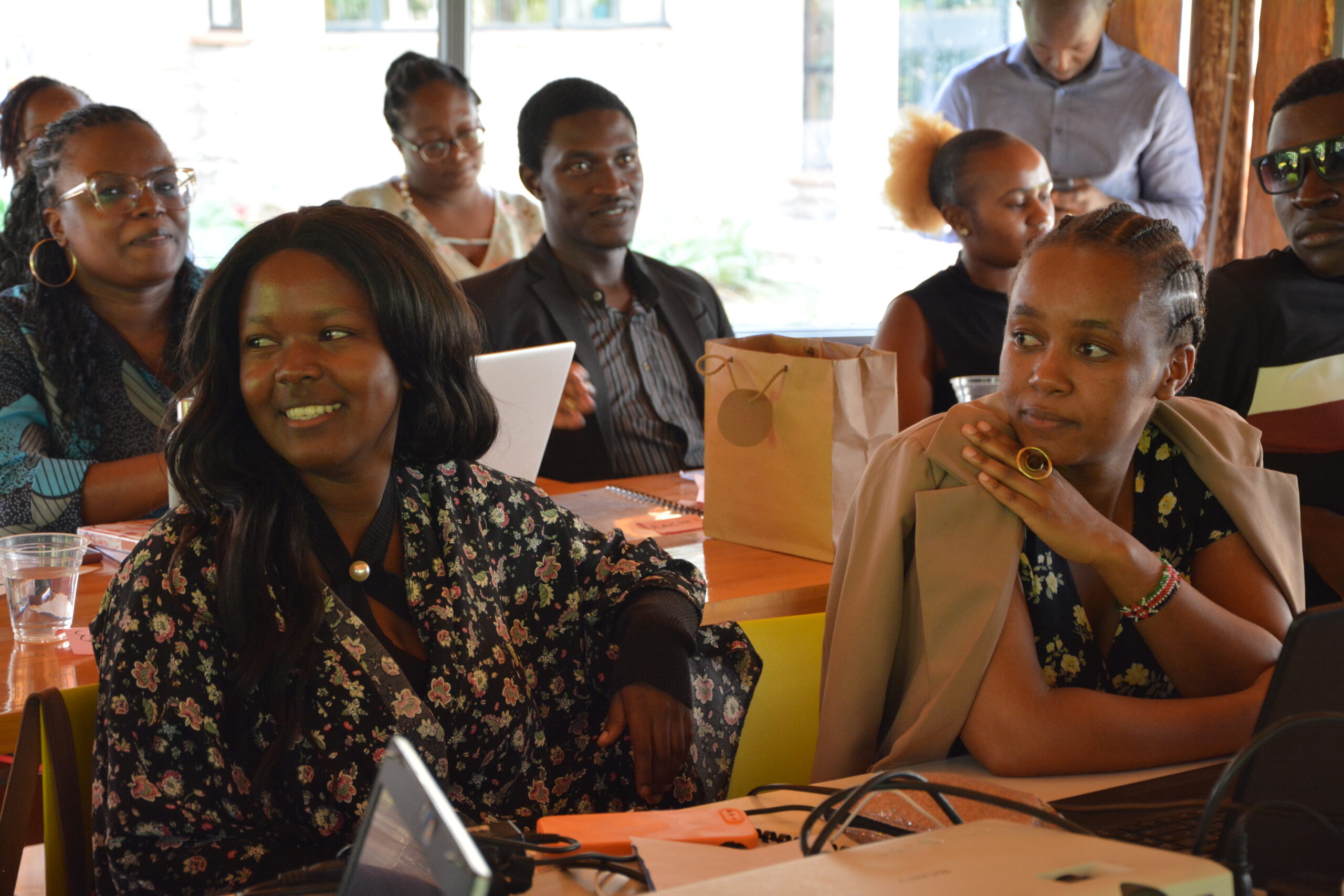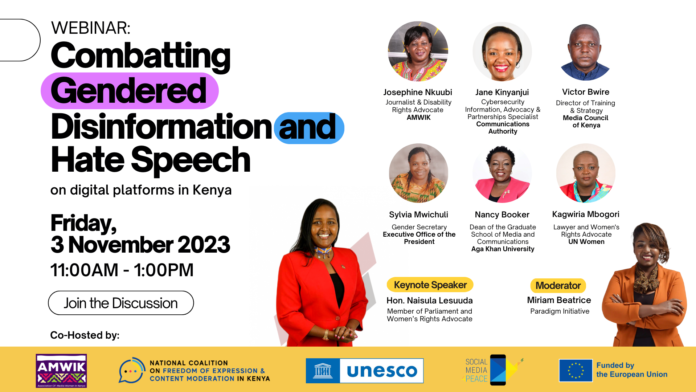[pdf-embedder url=”https://fecomo.org/wp-content/uploads/2023/12/FECoMo-Mombasa-Resolution-November-2023.pdf” title=”Resolution on Addressing Gendered Disinformation and Hate Speech on Digital Platforms in Kenya”]
Sorting Fact from Fiction: Kenyan Coalition trained to fact-check disinformation and hate speech online

Sorting fact from fiction can be an uphill task in today’s digital era, when disinformation and hate speech are frequently created and transmitted through online channels. Where media and information literacy (MIL) and digital skills are wanting, the effects of such potentially harmful content online can lead to serious consequences offline, including violence.
Fact-checking is a useful skill that enables one to identify and address false information that may be manipulated and disseminated in malice or mischief through digital platforms. Recognising this, UNESCO and the continent’s leading fact-checking organisation, Africa Check, organised a two-day training to equip regulators, media professionals, peace builders, and representatives from civil society organisations and academia with advanced fact-checking and digital verification skills to identify and address disinformation and hate speech online.

Held from 29 to 30 November 2023, the training is part of a series of interventions aimed at strengthening the National Coalition on Freedom of Expression and Content Moderation in Kenya (FECoMo), formed under the UNESCO Social Media 4 Peace project in Kenya. Established in March 2023, the new Coalition aims to strengthen cross-sectoral partnerships and provide a platform for structured dialogue with digital platforms to advance the localisation of content moderation in shaping a safe and empowering online environment in Kenya.
Over the two days, participants were introduced to a series of techniques and tools to identify disinformation online, including advanced search operators, InVID video verification tools, and geolocation.
“By the second day, we were full of knowledge as far as fact-checking is concerned. Some of us came without the knowledge and the skills, but we are now able to return to our various institutions to show our colleagues how to apply what we have learned here.”
— Professor Charles Nyambuga, Maseno University
The training is the second one co-organised by UNESCO and Africa Check, and builds on existing foundations to strengthen capacities of national regulators, actors, and civil society organisations to promote a healthy digital ecosystem and curation of positive peace-building narratives online.
It also complements the Build Peace Conference scheduled for 1 to 3 December in Nairobi, organised by Build Up and supported by UNESCO. The annual conference brings together interdisciplinary voices from around the world to explore emergent challenges to peace in a digital era, and peacebuilding innovations to address these challenges.

“For the second year running, Africa Check is proud and excited to offer this advanced experiential course to this useful coalition, which brings together government, civil society, media and academia. We are keen to turn all these participants into active and competent fact-checkers.”
— Alphonce Shiundu, Country Editor of Africa Check in Kenya
UNESCOs ‘Social Media 4 Peace’ project funded by the EU seeks to strengthen the resilience of civil society to potentially harmful content spread online, while protecting freedom of expression and contributing to the promotion of peace through digital technologies.
The proliferation of harmful content on digital platforms has led to erosion of public trust in news. This impacts livelihoods and democracies. We are glad that members of the Coalition have benefited from practical fact checking training by Africa Check, as acquiring these skills is part of a global response to addressing disinformation and hate speech on digital platforms.
— John Okande, Programme Officer, UNESCO Regional Office for Eastern Africa
Uniting to Combat Digital Gendered Disinformation
In an increasingly interconnected digital world, gendered disinformation, misinformation, and hate speech are becoming increasingly prevalent, targeting individuals and communities based on gender, race, and other defining characteristics. Gender-based online violence aids and abets impunity for crimes against journalists, as online violence against journalists frequently translates into offline harms, including murder with impunity. Crucially, online violence is symptomatic of a troubling environment where legal harassment and persecution of independent journalists is enabled.
As part of a multi-stakeholder response to these concerning trends, the Association of Media Women in Kenya (AMWIK) in collaboration with UNESCO organized a webinar on combatting gendered disinformation and hate speech on digital platforms in Kenya under the EU/FPI-funded Social Media 4 Peace (SM4P) project. The webinar brought together stakeholders from government, media associations/organizations, civil society organisations, media outlets, youth networks, academia, and technology networks, with the shared goal fostering structured collaboration to combat disinformation, hate speech and other related harms on digital platforms and social media.
Participants discussed challenges in Kenya’s digital media landscape and the impact and consequences of online disinformation and hate speech campaigns that exploit gender-related narratives. Online campaigns frequently employ misogyny and discriminatory content to spread false information and tarnish the reputation of women.
Hon. Naisula Lesuuda, the Member of Parliament for Samburu West, who graced the occasion as the Guest Speaker, shared her personal experiences and emphasized the negative impact of gendered disinformation and hate speech on women and gender equality. “It reinforces prejudice, perpetuates gender-based violence and undermines the hard-fought rights and gains of the feminist movement,” she shared.
Hon. Naisula’s sentiments were echoed by Patience Nyange, the Executive Director of AMWIK, who expressed concerns about the profound effects of gendered disinformation. “This vice jeopardises women’s safety and dignity,” she said, “and undermines the fundamental principles of free expression and digital equity that we hold dear.”
John Okande, Programme Officer at UNESCO gave an overview on gendered disinformation and hate speech, highlighting how digital platforms have enabled weaponization of these harms social and political objectives. He challenged participants to be engage and collaboratively come up with mechanisms and develop recommendations that would possibly help mitigate these phenomena, which continues to escalate.
An expert panel discussion was held with various experts, including Josephine Nkuubi (Journalist), Jane Kinyanjui (Communications Authority), Victor Bwire (Media Council of Kenya), Nancy Booker (Aga Khan University), Kagwiria Mbogori (Lawyer), and moderated by Miriam Beatrice (Paradigm Initiative). They discussed the causes and effects of gendered disinformation and hate speech, focusing on solutions specific to Kenya. The panelists also emphasized the importance of legal and regulatory frameworks, along with clear guidelines and penalties for those spreading harmful content.
The webinar highlighted media and information digital literacy competencies as a critical and important element for countering the spread of disinformation and hate speech on digital platforms. It was noted that related training and awareness campaigns would help empower not only women but other stakeholders and citizens to respond to these harms.
Above all, the discussions agreed that meaningful collaboration between media organisations, government agencies and civil society are key to developing effective strategies and interventions to combat gendered disinformation and hate speech on digital platforms.
UNESCO shared a variety of educational and advocacy resources on gendered disinformation and hate speech online, including a series of UNESCO-commissioned global studies on online violence against women journalists, UN Secretary-General António Guterres “Our Common Agenda” policy brief on Information Integrity on Digital Platforms, and UNESCO’s Global Guidelines for the Governance of Digital Platforms, published in November 2023. These resources offer actionable recommendations for practitioners to safeguard freedom of expression and access to information in their respective fields.
UNESCOs Social 4 Media Peace project funded by the European Union seeks to strengthen the resilience of civil society to potentially harmful content spread online, while protecting freedom of expression and contributing to the promotion of peace through digital technologies.
Content Moderation and Local Stakeholders in Kenya
[pdf-embedder url=”https://fecomo.org/wp-content/uploads/2023/11/Kenya-country-report-3.pdf” title=”Kenya-country-report (3)”]




